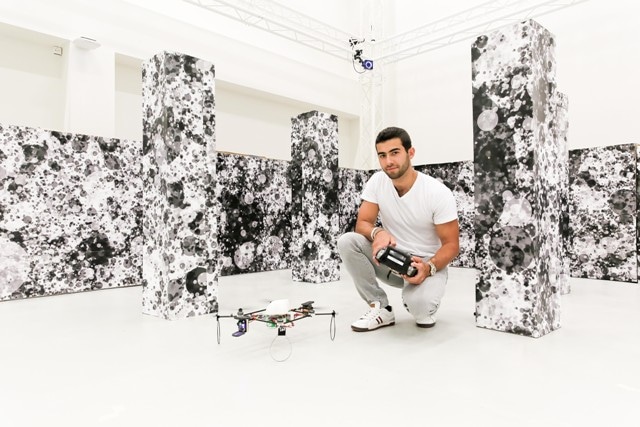Jul 19 2016
An algorithm inspired by insects has led to the development of a drone that can navigate around obstacles. The drone, designed by Darius Merk, could help in times of natural disaster.
 (Credit: EPFL/ Alain Herzog)
(Credit: EPFL/ Alain Herzog)
The issue that he wanted to address was how to send a drone on a reconnaissance mission in an area that is difficult to access without them getting trapped in the rubble. Although the drone can be controlled remotely, contact could be lost if the device went behind a wall.
Robot enthusiast, Darius Merk, who studies Physics at EPFL has developed a drone that can overcome this obstacle as a part of his Master's project. The insect vision-inspired drone was developed in EPFL’s Laboratory of Intelligent Systems.
The autonomous robot has the ability to detect barriers in its path and hence can navigate without colliding into them. Dissimilar to human sight, the drone doesn't use stereoscopic vision to determine depth and distance.
Using cameras to simulate the human eye requires a lot of computing power. For this, the drone would need to have a small on-board computer, which would make it difficult to miniaturize.
Darius Merk, Physics Student, EPFL
The vision of the drones developed by Merk is like that of the insects that have faceted eyes. “Insects find their way by using their optical flow to assess how an image moves, with a distant object moving more slowly than a closer one,” explains Merk. With two 15 g cameras fixed at the front and rear of the drone, a 360-degree view of the surrounding can be attained. Moreover, as only a little computing power is required for the drones, its size can be reduced to approximately 10 cm.
The device can be very useful in times of natural disasters, in scouting the area and in rescue missions. The autonomous drone weighs less and is capable of navigating around obstacles. The drones can follow paths that are programmed into them, to collect videos and photos that are inaccessible to humans.